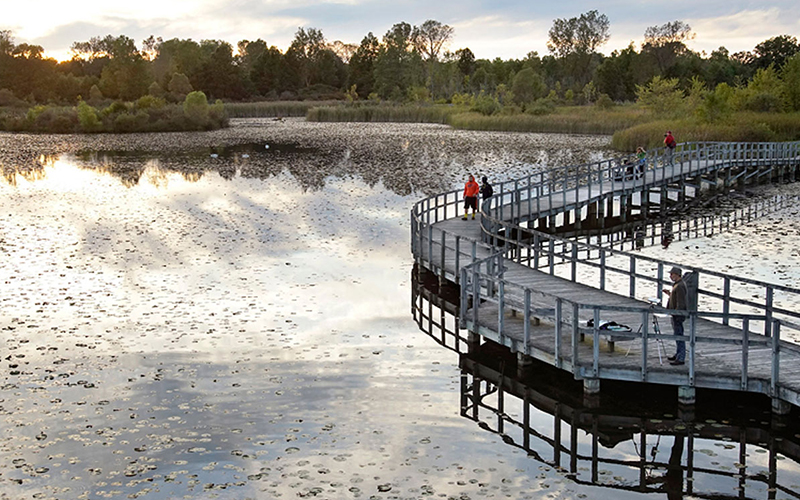ASLA is deeply concerned by the latest scientific findings outlined in Climate Change 2022: Impacts, Adaptation, and Vulnerability
 ASLA 2019 Professional Landmark Award. Crosswinds Marsh Wetland Interpretive Preserve. Sumpter Township, MI. SmithGroup / Aaron Kiley
ASLA 2019 Professional Landmark Award. Crosswinds Marsh Wetland Interpretive Preserve. Sumpter Township, MI. SmithGroup / Aaron KileyThe American Society of Landscape Architects (ASLA) is deeply concerned by the latest scientific findings outlined in Climate Change 2022: Impacts, Adaptation, and Vulnerability, the second research assessment of the Intergovernmental Panel on Climate Change (IPCC), and supports the increased global focus on restoring ecosystems and implementing ‘climate resilient development’ practices to help more vulnerable communities stave off the worst impacts.
“This is the direst warning yet from the IPCC, and only reiterates the critical importance of our shared vision, which guides all our work -- to plan and design healthy and resilient communities for all,” said ASLA President Eugenia Martin, FASLA. “Working closely with other planning and design disciplines, we must accelerate our collective efforts to protect and restore natural systems and help communities get onto more resilient pathways. We must help communities around the world get ready for a much different world in 2100.”
“Landscape architects have been increasingly alarmed by the climate impacts they have heard from communities, researched, and witnessed themselves. The vast majority of practicing landscape architects surveyed last year have been actively educating their partners about the need to adopt climate resilient practices to address extreme heat, flooding, and other increasingly dangerous impacts immediately,” said ASLA CEO Torey Carter-Conneen. “We are committed to advancing resilience strategies that will help communities not only in the U.S. but also internationally.”
Many expected climate impacts are now “increasingly irreversible” and worse than anticipated even a few years ago. All regions of the globe will be impacted by increasing temperatures and extreme weather events, with the highest impacts in regions that are already among the most vulnerable.
ASLA notes that green infrastructure and ecosystem services, sustainable land use and urban planning, improved water efficiency, integrated coastal zone management and coastal defenses, and sustainable urban water management – all areas in which landscape architects plan and design solutions – are highlighted as key adaptation solutions, many of which also have high climate mitigation benefits.
ASLA believes it's important to partner with all communities to provide comprehensive, equitable, and long-range climate adaptation planning. Landscape architects understand the connections between climate, health, ecosystems, and biodiversity, and can help communities better understand to reduce their risks. We must plan and design with nature to protect ourselves.